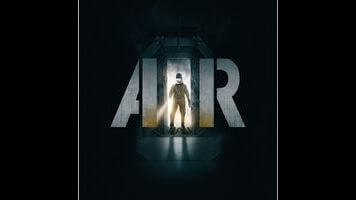The camera often crawls at what feels like half-speed, as though it were recording it all for posterity. It brings to mind Roland Emmerich’s early German cheapies—movies like The Noah’s Ark Principle and Moon 44, showcases of resourceful production design and practical effects, meant in part as calling cards for Hollywood. The difference is that while the kit-bashing, industrial-scrap-scouring wannabe filmmakers of that period were trying to ingeniously imagine a future with available materials, what Air sets out to present is the already familiar.
What it is, in other words, is science fiction in quotation marks. That makes for some unquestionable aesthetic pleasures—namely, a swooping, whizzing synth score that builds to a Vangelis-esque end theme, and some handsome camerawork by Norm Li, cinematographer of the similarly retro-genre-fetishistic Beyond The Black Rainbow. But it isn’t much of a reason to be. Cantamessa’s background is game design (Manhunt, Middle-Earth: Shadow Of Mordor), and Air is all environment and puzzles. However, unlike other recent movies that take their cues from game design—namely Bong Joon-ho’s Snowpiercer—it doesn’t progress through its environment so much as circle it in repetitive tasks.
Bauer (Norman Reedus) and Cartwright (Djimon Hounsou), two custodians in coverall uniforms, are awakened every six months to make sure the equipment preserving the other survivors is running properly. Their work has to get done in two-hour shifts of carefully rationed breathable air. Over and over, they cross the same handful of rooms (a control center, a corridor, the chamber housing their hibernating charges, an airlock, etc.), though the dimensions and spatial relationships of these spaces remain strangely unclear. Both men are somewhere at the point where stir-craziness tips into outright madness; Cartwright is already talking to an imaginary woman (Sandrine Holt) out loud.
Unsurprisingly, tensions and suspicions flare up, exacerbated by the time limit on their air supply. Secrets are kept. But though both actors do typically fine work—especially Reedus as the more antagonistic of the pair—there’s no sense of psychology, with the final act a mess of dramatic motions that feels nonsensical, though not in a way that suggests that unbalanced states-of-mind have anything to do with it. And if Air isn’t really about people and it isn’t about its post-apocalyptic premise—which it engages with only as a set up and a way to introduce some non-shocking twists—then all it has is a narrative mechanic dressed with lame gestures of grief and sacrifice. Even that, the movie cheats whenever it can. At least it’s interesting to look at, if only at first.


 Keep scrolling for more great stories from A.V. Club.
Keep scrolling for more great stories from A.V. Club.